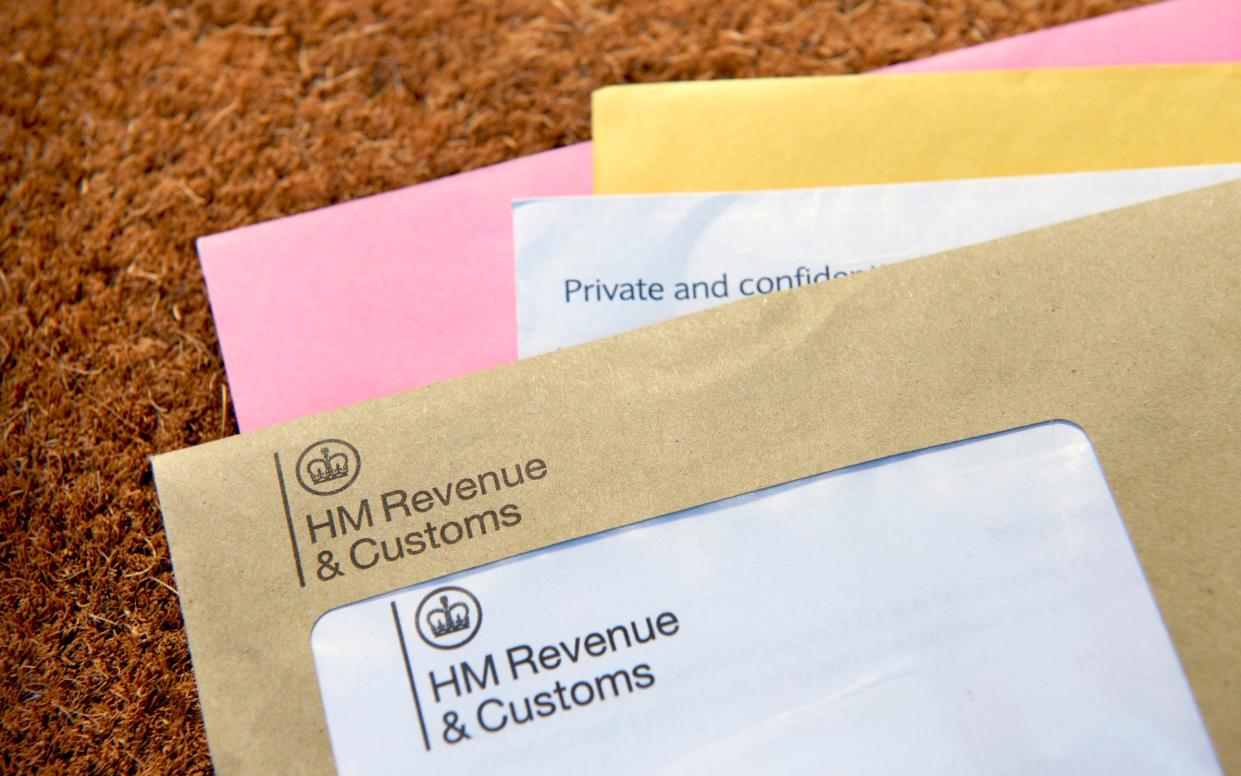HMRC tax crackdown linked to ten suicides is ‘next Horizon scandal’

- Oops!Something went wrong.Please try again later.
- Oops!Something went wrong.Please try again later.
A tax crackdown on freelancers and agency workers linked to 10 suicides and an abortion has been labelled “the next Horizon scandal”.
MPs on Thursday called for an end to HM Revenue & Customs’ controversial “loan charge” – a tax charge affecting 60,000 workers including nurses, teachers and IT contractors and leaving them with crippling bills.
The self-employed and contractors entered into widely promoted tax-saving schemes, which meant they were paid wages via loans.
Being paid wages via loans meant they avoided paying income tax and national insurance.
However, in 2017 HMRC demanded those who used them to pay tax on all the loans they had received in one go.
Some had used the loans for years, resulting in in six-figure back tax bills charged at the highest 45 per cent rate.
The charge has been formally linked to 10 suicides, while on Thursday it emerged one victim had chosen to have an abortion to avoid having a child with the financial stress of the tax dispute hanging over her.
It is more than double the four suicides so far linked to the Post Office Horizon scandal.
Debating the charge in the House of Commons, MPs accused HMRC of chasing the victims of the loan charge schemes because they were “easy targets”, rather than going after their “unscrupulous” promoters, and said the governments had turned a blind eye to the issue.
Sammy Wilson, Democratic Unionist Party MP for East Antrim, said: “We are looking at another Horizon scandal.”
Jacob Rees-Mogg, Conservative MP for North East Somerset, said: “This is a classic example of the state abusing its power through aggressive tax collection.”
The loans, sold from the turn of the millennium, were designed to avoid tax and were argued to the contractors as compliant with UK law.
Some were even forced into these schemes by their employers, it is claimed.
Sarah Green, Liberal Democrat MP for Chesham and Amersham, said one of her constituents had an abortion because she was concerned about the affordability of having a child because of the charge. Sir Iain Duncan Smith, Conservative MP for Chingford and Woodford Green, accused HMRC of operating “almost without impunity”.
Sarah Gabbai, of law firm McDermott Will & Emery, said: “There is an increasing body of evidence which shows that contractors and freelancers across a variety of sectors from IT to health and social care were either inadvertently dragged into these schemes or were inadequately advised of the risks, and are now facing unaffordable and life-changing tax bills.”

MPs including Ms Green and Gerald Jones on Thursday called for the Government to launch a “genuinely independent review” into the loan charge scandal, concerned that HMRC may have influenced the 2019 review which concluded the charge should remain in place. In 2019 the Government ordered for an independent review of the loan charge to be carried out by Sir Amyas Morse of the National Audit Office.
Many of the review’s recommendations were accepted – including one that the charge should be repealed for loans made before 2010.
But a report by the Loan Charge All-Party Parliamentary Group alleged that HMRC interfered, including by getting an early look into the review’s findings before publication. This was according to several freedom of information requests.
Gerald Jones, Labour MP for Merthyr Tydfil and Rhymney, said: “The 2019 Morse Review cannot be the final word on this matter.”
However, Nigel Huddleston, financial secretary to the Treasury, told MPs he did not think a case had been made for another review.
“The Morse review was thorough,” he continued, “and 19 of the 20 changes were implemented.”
Provisions in the Finance Bill “currently progressing through this house” will make it a criminal offence to promote tax avoidance schemes after HMRC has issued a formal order to cease promotions, known as a “Stop Order”, he added.
An estimated 40,000 are still being pursued for the loan charge.
An HMRC spokesman said: “The loan charge seeks to recover tax that has been avoided by disguising income as loans. It is our responsibility to collect the tax that people owe.
“We take the wellbeing of all taxpayers very seriously and recognise that dealing with large tax liabilities can lead to pressure on individuals.
“The support we have in place to help people settle their previous tax avoidance includes offering payment by instalments: these arrangements are based on what the taxpayer can afford, and there’s no upper limit over how long we can spread payments. Our message to anyone who is worried about paying what they owe is: please contact us as soon as possible to talk about options.
“Above all we want to prevent people getting into these types of situations and our message is clear – if a tax scheme sounds too good to be true, it probably is.”
Recommended
HMRC spends thousands of taxpayers’ money chasing trivial sums

